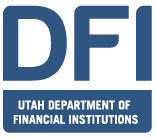Industrial Banks
An industrial bank is a state chartered depository institution that is:
- eligible for FDIC insurance
- exempted from the technical definition of a “bank” for the purposes of the Bank Holding Company Act of 1956 (BHCA),
- otherwise generally subject to the same banking laws and regulations as other bank charter types.
The exemption from the BHCA means corporate owners of an industrial bank do not necessarily have to be bank holding companies. This enables non-financial companies to own and operate an industrial bank.
Historically, this class of institution has been available in Utah and only a handful of other states. Most of the chartering activity in recent years has taken place in Utah. Industrial banks were also known as industrial loan corporations (ILCs) in Utah until 2004 when state law was amended to rename this class of institution to better reflect their legal status as fully fledged FDIC insured depository institutions. Outside of Utah, industrial banks are often still referred to as ILCs.
Industrial banks are subject to the same regulatory and supervisory processes as any other bank. Industrial banks are authorized to make all kinds of consumer and commercial loans and to accept federally insured deposits, although an industrial bank may not accept demand deposits if the bank has total assets greater than $100 million.
Utah has 15 banks operating with active industrial bank charters. One inactive charter has been granted but the owner has not activated the charter or pursued the requisite FDIC insurance.
All industrial banks deposits are insured by the Federal Deposit Insurance Corporation (FDIC).
If you are interested in financial data relating to industrial banks, the FDIC has a bank data web page which provides access to the latest CALL report information.
